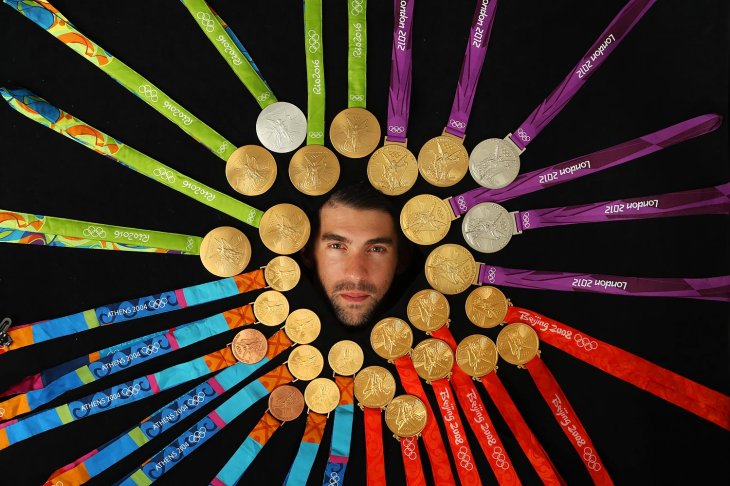Tokyo 2020 Olympics’ Medals Will Be Made From Recycled Electronic Waste
Aadhya Khatri - Feb 11, 2019

Tokyo 2020 Olympic medals will be made from 100 percent recycled gadgets as Japan is calling citizens to take part in donating discarded gadgets.
- Toyota's Electric Cars Kick In The 2020 Summer Olympic
- Twitter And NBC To Team Up For Live Coverage Of Olympics 2020
- Scientists Convert Plastic Waste Into 100% Clean Fuel, Saving Earth
The 2020 Olympics are going to be held in Japan, and the hosting country is on track to ensure that this leading international sporting event runs smoothly. Efforts are being put in not only the opening show but also innovating the way medals are made.
The latest plan drawn up by the Games’ organizing board includes recycling electronic waste and turning it into medals for winning athletes.

In a declaration, the board said that their scheme gained positive support from the general public, Japanese firms, as well as local and international competitors. So far, they have already had around 47,488 tons of e-waste ready to be used, including laptops, smartphones, batteries, and other handheld devices.
After 19 months of launching this project, the committee had collected enough bronze in June, 90% of the goal for gold and 85% for silver have been reached as we speak. Although they still have 10% of gold and 15% of silver to go, with the number of unprocessed devices, the board roughly calculates that they have already had what they need. This program will come to an end in the 31st of March, and the designs for medals will be out this year.
This plan might sound promising enough, but Japan is still working toward larger plans for the Olympics and Paralympics. The next big thing they are carrying out is to produce enough renewable energy for the games, accommodation for the athletes, the broadcasting and the press center.
Making medals from recycled materials is not a brand new idea though. Similar concepts have been introduced in the previous Olympics. A prime example would be the 2016 Rio event in which they used such material to make 30% of silver and bronze medals. What sets Japanese plan apart is the fact that this is the first time ever the general public is directly taking part in the process as they are the ones who donate the used junked devices.
Featured Stories

Features - Jan 29, 2026
Permanently Deleting Your Instagram Account: A Complete Step-by-Step Tutorial

Features - Jul 01, 2025
What Are The Fastest Passenger Vehicles Ever Created?

Features - Jun 25, 2025
Japan Hydrogen Breakthrough: Scientists Crack the Clean Energy Code with...

ICT News - Jun 25, 2025
AI Intimidation Tactics: CEOs Turn Flawed Technology Into Employee Fear Machine

Review - Jun 25, 2025
Windows 11 Problems: Is Microsoft's "Best" OS Actually Getting Worse?

Features - Jun 22, 2025
Telegram Founder Pavel Durov Plans to Split $14 Billion Fortune Among 106 Children

ICT News - Jun 22, 2025
Neuralink Telepathy Chip Enables Quadriplegic Rob Greiner to Control Games with...

Features - Jun 21, 2025
This Over $100 Bottle Has Nothing But Fresh Air Inside

Features - Jun 18, 2025
Best Mobile VPN Apps for Gaming 2025: Complete Guide

Features - Jun 18, 2025
A Math Formula Tells Us How Long Everything Will Live
Read more

ICT News- Feb 18, 2026
Google's Project Toscana: Elevating Pixel Face Unlock to Rival Apple's Face ID
As the smartphone landscape evolves, Google's push toward superior face unlock technology underscores its ambition to close the gap with Apple in user security and convenience.

Mobile- Feb 17, 2026
Anticipating the Samsung Galaxy S26 and S26+: Key Rumors and Specs
The Samsung Galaxy S26 series is on the horizon, sparking excitement among tech enthusiasts.

Mobile- Feb 16, 2026
Xiaomi Launches Affordable Tracker to Compete with Apple's AirTag
For users tired of ecosystem lock-in or high prices, the Xiaomi Tag represents a compelling, no-frills option that delivers core functionality at a fraction of the cost.
Comments
Sort by Newest | Popular